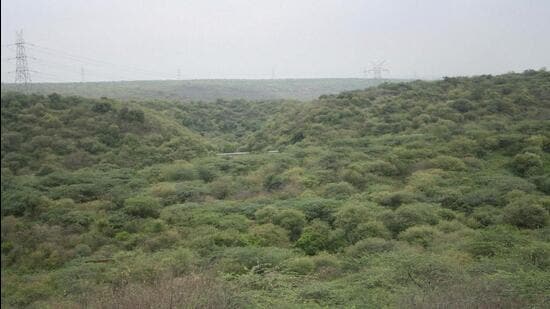Forest officers flag concerns over Madhya Pradesh appraisal rules
They highlighted that the objectives of forest officials (conservation) sometimes clash with those of the so-called revenue officials (revenue maximisation)
Indian Forest Service officers have expressed concern over a Madhya Pradesh government order issued on June 29 which states that the work of divisional forest officers, conservators and chief conservators posted at the district level and involved in field activities such as those that are related to the forest rights act, land acquisition, ecotourism, or mining activities in forest areas will be appraised by district collectors and divisional commissioners separately, pointing out that this is in violation of Supreme Court orders, and could also result in situations where senior officers are appraised by those junior to them.

They have also highlighted that the objectives of forest officials (conservation) may sometimes clash with those of the so-called revenue officials (revenue maximisation), especially when it comes to issues such as mining rights.
The comments by the Indian Administrative Service officers will be included in their annual confidential report (ACR) that will be reviewed by senior Indian Forest Service officers, the order added, explaining that the revenue department officials will also mark (out of 10) the performance of field forest officials on these matters.
To be sure, this system of appraisal will not apply to non-field officials who are posted in the department or secretariat. They will follow the regular channel of being appraised by their seniors, the order said. The marking and assessment by DC applies only to field officials and only related to projects in defined areas.
“Government of Madhya Pradesh has passed an order dated June 29 in which the channel of submission of annual performance assessment report (APAR) of IFS officers starting from DFO to PCCF was prescribed. In the same order it is mentioned that the works related with joint forest management, matter related with forest rights act, land acquisition, eco-tourism, mining activities in forest areas, redevelopment activities and other important works performed by divisional forest officer, conservator of forests and chief conservator of forests will be evaluated by district collector and divisional commissioner concerned by awarding number out of 10 along with his/her remarks in APAR. The order will be implemented from 2024-25,” the letter sent out to the MP chief minister by IFS Association Delhi on July 4 stated.
“This order passed by the government of Madhya Pradesh is in contravention to the orders of Honble Supreme Court. This administrative order will serve as a major setback for the conservation and protection of natural resources of the country, which is the prime mandate of Indian Forest Officers...this impugned order which is against the spirit of the order of the Honble Supreme Court will adversely affect the morale of the IFS officers working on the field,” the letter added, pointing out that senior officers posted on the field like chief conservator of forests will be appraised by DCs who are officers of much junior rank in pay scale and grade.
The Supreme Court in an order dated September 22, 2000 in the matter of TN Godavarman Vs Union of India & Others and in the matter of Santosh Bharti Vs State of MP ruled that the competent authority to write the confidential report of forest department officers will be officers superior to them in the same service when posted in the field.
“We do not function at the district level. Each district has four divisions and hence four DFOs. The DFO reports to the conservator and conservator reports to the chief conservator of forests. The CCF reports to the principal conservator of forests who then reports to the chief secretary. This is described in the SC order of 2000 also. Our job is not revenue generation. For example, in mining cases conflicts can very easily arise as forest officials may not allow such activities in certain areas. Same kind of problem applies to ecotourism, land acquisition, developmental activities etc. This will then have an impact on the career of IFS officials,”’ explained a member of the association.
The state government’s order seems to be motivated by a desire for better “coordination” across departments.
State forest department principal secretary Ashok Varnwal said the order does not violate a Supreme Court judgement.
“It’s only senior forest officials will write the annual confidential report (ACR) of DFO or CCF but here state government has just asked district collector and divisional commissioner to forward a comment on a separate sheet so that better coordination could be established. If DFO and CCF have any problem with report of collector and commissioner, they can inform their senior about it,” Varnwal said.
The order is very clear but it is being misinterpreted by a few people, he added.
But an expert pointed out that the order could compromise the independence of forest officials.
“Forest Officers, as custodians of forests and wildlife, often take different stances on development projects compared to the district administration or other state departments, in the interest of forest and wildlife. Such administrative oversight by the district collector directly impacts their independence in performing statutory functions and therefore should be revoked,” said Debadityo Sinha, senior resident fellow and lead, the climate & ecosystems, Vidhi Centre for Legal Policy.






